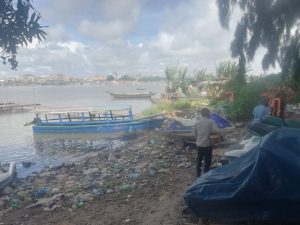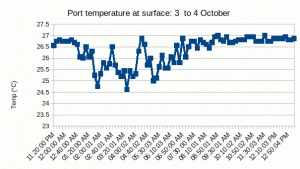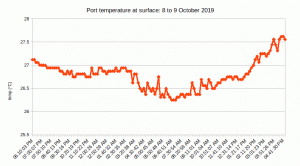10/11/2019
Reporter Katrijn Baetens
The team got back to the lake the 11th of November to pick up the thermometers left at the three stations. The one at the yatch club unfertunately was not sealed properly, so no data could be retrieved. Also the one at the west of the lake did not provide us with good data, here the issue was a malfunctioning of the thermocouple itself. The data logger in the center gave results for 7 days, the light was not switched on when retrieved, this sensor used rechargeable batteries.
The results of the 6 day temperature measurements:
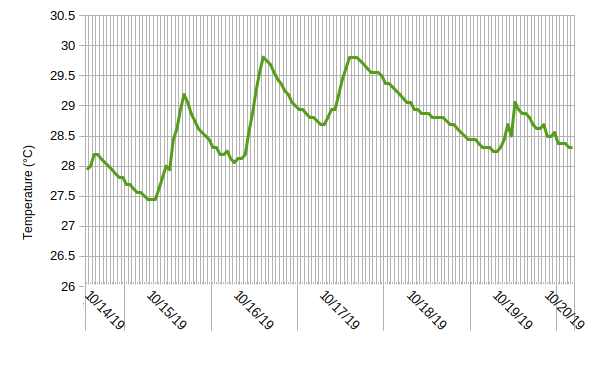
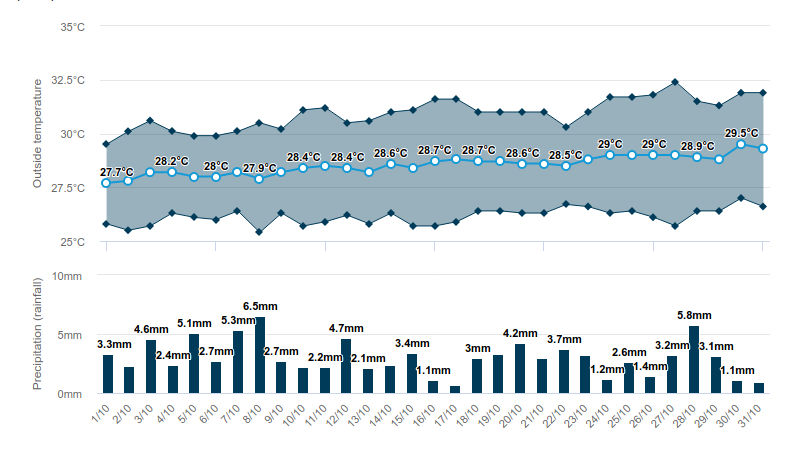
From the results it is clear that their is mostly a clear day-night cycle observed in the surface temperatures of the lake except during the night of 17 and 18 October. The average temperatures of the atmosphere in the region did not explain why there was a decrease in overall surface temperature, an increased precipitation rate could have induced the observed temperature drom. Further research is necessary.
Our first experiences with the Arduino based equipment are good, however, to compete with the professional equipment , a better solution for powering the device should be found. Also proficient care should be given to sealing up the system and making sure the sensor is properly working.


